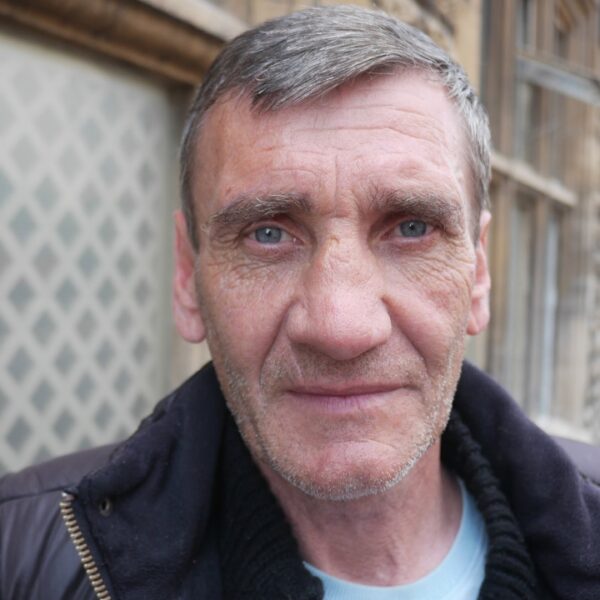Other countries will want to copy Wales’ Duty to Assist law as it shows why waiting for homelessness to become ‘bad enough’ helps no one
In 2015, Wales became the first country to institute a duty to assist law. The law forces the government to actively help homeless people find housing. Now, Canada and Australia are interested in adopting it, too.
The philosophy behind this approach is to help people the moment they fall into homelessness, if not before, rather than waiting until they meet a certain set of criteria to qualify for help or focusing on the chronically homeless. That way, you can prevent many people from ever becoming homeless in the first place, and rehouse the few that fall through the cracks much quicker.
The less time someone spends homeless, the better for everyone.
How It Works
This is how it works – and it does work:
Under the Housing Wales Act, all local authorities are required to work with people facing homelessness. This puts the focus back on offering support through any means possible, rather than ticking off boxes to see which programs the person can qualify for under which circumstances. It’s much more of a common-sense approach allowing officials to tear down some of the bureaucratic red tape and get back to simply helping people. Flexibility and creativity are now part of the job description.
Some of the techniques available for officials’ use include:
- paying off rent and mortgage arrears for those about to be evicted
- financial assistance with rental deposits and letting agents’ fees
- funding environmental health officers to remedy poor quality private housing conditions
These are things that may not have been possible before the passage of this law. However, they have a huge impact on the number of people forced to endure homelessness each year.
The duty to assist law helps to reverse the causes of homelessness while they’re still developing – before they become an even bigger problem for everyone involved.
It makes no sense to wait. Especially when you consider every person who is not adequately helped to avoid homelessness incurs costs ranging from £3,000 to £18,000 within the first year alone.
Both costs to the public purse and individual suffering are reduced when we simply shift our focus to preventing homelessness in the first place, rather than waiting to intervene until it’s already entrenched.
Who Else Is Using It?
When this policy was enacted in Wales in 2015, it was among the first of its kind. Scotland had abolished its priority need test in 2012. But the Welsh duty to assist was still quite revolutionary. Since then, many other countries have seen the great results it’s had, and moved to institute similar policies themselves.
In 2017, England reformed their legislation with the Homelessness Reduction Act. This enhanced the prevention duties of local authorities, tasking them with intervening to prevent homelessness at a much earlier stage, up to 56 days sooner. The Homelessness Reduction Act also requires authorities to provide assistance to all those who need it, rather than the relatively few that fall into a priority need category.
Who Wants It?
The Welsh system is one that could benefit people at risk of homelessness all over the world. But there are a few countries close to adopting the program for themselves. Hopefully, it continues to spread with similar results!
There is some interest within Canada in adopting the Welsh duty to assist model of homelessness prevention. However, the Canadian government has surprisingly little official involvement in homelessness prevention programs. While many of the nation’s nonprofits, charities, and other agencies voluntarily use a similar system, it would be most effective if everyone was on board, so to speak. It’s definitely time for Canada to take a more hands-on, defined approach to eradicating homelessness within the country. And the Welsh method of homelessness prevention is just the system to do that.
Australia is also interested in adopting the Welsh duty to assist model. There, as in many places around the world, homelessness is ever increasing while funding to fight it is ever decreasing. They seem to be on the verge of a tipping point. To get out of crisis mode, Australian authorities must all start acting before they get to the crisis point. This means intervening sooner in the lives of those facing homelessness, rather than waiting until they already are homeless to add them to the list. Early prevention is the key to getting ahead of the homelessness crisis.
A Worthwhile Transition, But Not An Easy One
In many places, homelessness is rising at a rate that feels impossible to keep up with. At first, transitioning to a system like this looks like it will only add to the workload of officials trying to stem the tide of homelessness. While it’s true that it will reduce the load in the long run, adding more on top of an already full plate can be a bit of a hard sell.
If we want to end homelessness permanently, we must take the long view. Focusing on the chronically homeless has proved to be exhausting and minimally effective, much like swimming against the current.
To make the most difference with the least resources, we need to be focused on preventing homelessness in the first place.
We need to get people who do become homeless into housing as soon as possible. Waiting until the problem is “bad enough” has not been working. Focusing on our most vulnerable exclusively has only led to more and more people becoming vulnerable in the interim.
We must stop people from becoming homeless in the first place. This strategy is more effective than scrambling to help them once they’ve been homeless for months or years. It’s easier, cheaper, more efficient, and saves a great deal of human suffering. It is the only way forward.
After all, an ounce of prevention is worth a pound of cure.













